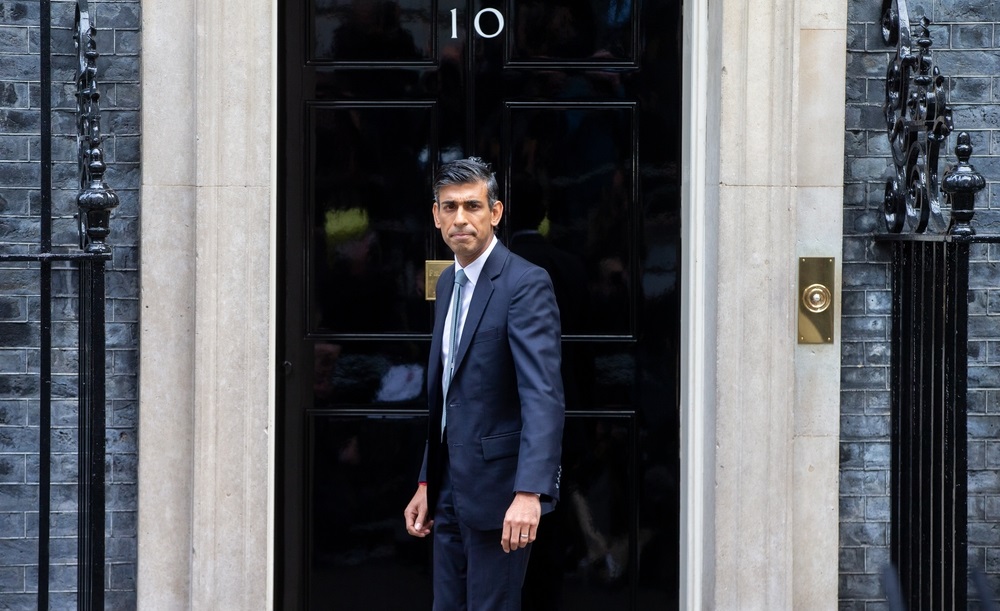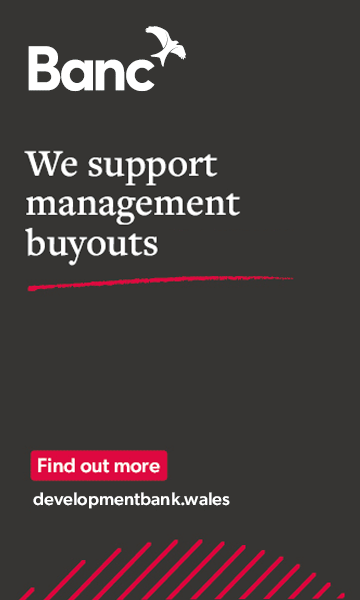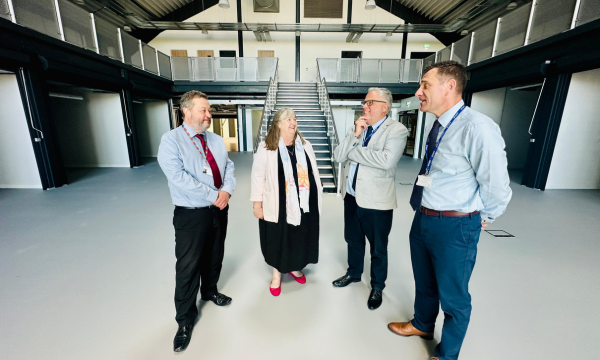
Business organisations have responded to news that a General Election will take place on July 4.
Prime Minister Rishi Sunak made the announcement in a statement outside Downing Street.
Ian Price, Director, CBI Wales, said:
“This General Election needs to be about how our political leaders will get the UK economy firing on all cylinders and deliver sustainable growth for the benefit of our society.
“Whoever forms our next government can’t tackle these momentous challenges alone – they will have to partner with business to harness the insights, innovation and optimism needed to deliver real and lasting change.
“Right now, too many businesses and households still face rising costs which delay investment decisions and dampen consumer spending.
“Our members want to see politicians having grown-up conversations about how we foster the investment we need to have a labour market which delivers higher living standards, to accelerate our transition to net zero and make the UK an attractive place to run and grow business.
It’s critical that these issues that will affect the UK’s long-term growth prospects are reflected meaningfully in the debate over the next six weeks.”
National Chair of the Federation of Small Businesses (FSB), Martin McTague, said:
“Small business owners and self-employed people across the country will be looking for which party puts forward the most compelling pro-growth, pro-business policies to stimulate the economy and encourage entrepreneurship.
“The hard-working voters running the UK’s 5.5 million small firms are a large and motivated section of the electorate. A further 16 million voters are employed by small businesses.
“There will be fierce competition for their votes at this election, and those competing will need a convincing plan to bring down the cost of doing business, support small businesses to grow, and create the right conditions to encourage new businesses to start up. As the campaign begins, each party will need to put forward a clear small business offer or manifesto.”
Victoria Bond, CLA Cymru Director, said:
“As we look towards the election on July 4 it is imperative for every party to show they understand and support the aspirations, skills, and dedication of the rural Welsh populace. What we need is not just promises but a well-defined strategy and a commitment to funding that will secure the future and rural potential of Wales.
“Rural Wales is brimming with entrepreneurs, job creators, and visionaries ready to enhance our economy. However, for far too long, successive governments have overlooked these vibrant communities, treating them like relics rather than the engines of growth they truly are.
“The party that can deliver a comprehensive and forward-thinking growth strategy for the rural economy will find strong allies in CLA Cymru. We are eager to work together to realise the vast potential of our countryside.”
Sara Jones, Head of the Welsh Retail Consortium, said:
“Following today’s announcement, the weeks leading up to polling day will undoubtedly be politically charged. As the parties and candidates outline their priorities, they should be mindful that lifting private sector investment will be key.
“This reinforces the need for a coherent approach to policy making and an agenda which keeps down the cost of doing business and the cost of living and encourages firms to grow. Every policy pursued by the next administration should be tested against a benchmark of whether it will make this country a better place for retailers and other firms to invest and expand and ultimately the best place in the world to grow a retail business.”
Suzy Davies, Chair of the Wales Tourism Alliance, said:
“Tourism businesses across the UK will be looking closely at those manifesto commitments which affect the industry, but will definitely be wanting good news on business rates and VAT.
“Countries that have tourism tax also have lower VAT rates than we have here – and, crucially – compared to VAT applied to other types of business in those countries themselves.
“That matters in Wales where Welsh Government has additional tax burdens of its own on tourism and hospitality businesses.
“Air passenger duty and visa requirements will also be of interest. While we fully support training and skills development here, we're still feeling the squeeze of losing European members of the workforce.“We'll be preparing our own manifesto asks to help support an industry that still offers so many opportunities to the UK but with the benefits for Wales as our main focus.”
Paul Butterworth, CEO of Chambers Wales South East, South West and Mid, said:
“Following the fall in CPI inflation to the lowest level in almost three years and the announcement the economy grew 0.6% it is not surprising a General Election has been called. Chambers Wales welcome the timing of the announcement; with the Senedd elections on the horizon, this will allow post-election relations to be settled.
“It is our hope that there will be a revitalised, collegiate working relationship between Westminster and Cardiff Bay with a strong focus on developing our economy where Wales plays a significant role that supports higher levels of productivity, entrepreneurship, net zero skills for our green economy development and stronger international trade and inward investment opportunities.
“Any government needs to develop a sustainable, growth focused economy that offers all people right across Wales the right to work and contribute to improving equity, educational standards, healthcare and tackling inequality. All this can only be achieved by improving GVA. Investing in the skills landscape regionally should be a key priority to support SMEs across Wales.”
Robert Lloyd Griffiths OBE, Director of ICAEW in Wales, said:
“The UK is at a crossroads with the leaders of all political parties facing major decisions about the shape and direction of our future economy. ICAEW has been engaging with all of the political parties in advance of the General Election and we have set out our vision for a resilient economy and a roadmap for renewal. Bold action is needed from whatever party gets the keys to Number 10 on July 5.”
Lloyd Powell, Head of ACCA Cymru, said:
“ACCA has members and students across Wales, adding value to the Welsh and the UK economy. Our calls to action for the next UK Government include creating a framework for growth by nurturing a transparent and trustworthy business ecosystem.
“A strong, modern, institutional and legislative framework, responding to a changing world on trust, sustainability and AI is key to ensure the UK meets its potential from our world-leading advantages. As a foundation of a healthy economy, reform is urgently needed to improve corporate governance, simplify the UK’s tax system and restore trust in HMRC. Effective and robust management of our public finances will be needed to underpin modernisation and investment in public services meeting citizens’ expectations while delivering accountability for public spending.
“To achieve this, ACCA is calling on the next UK Government to:
- Prioritise swift completion of the planned legislative elements of the audit and corporate governance reform process currently underway, including the establishment of a fit-for-purpose regulator.
- Build on the principles of simplicity, certainty and stability as the foundations for a sound tax system; commit to a programme of tax simplification to encourage innovation, economic growth and support robust tax take by removing barriers to compliance. This should include the development, delivery, and measurement of tax simplification actions.
- Restore trust between HMRC, taxpayers and agents by implementing a programme of improvements, including additional resource, training for staff, to address serious issues with unacceptably low service standards.
- Pilot an enhanced role for professional agents in R&D tax claims to enable HMRC to focus on targeted engagement.
- Renew investment in technology, skills and training in our Public Financial Management (PFM) to improve productivity, improved service delivery and deliver value for money for public investment.
- Provide the UK-wide public sector with greater funding certainty through multi-year budgets, to provide stability for innovation and transformation in service delivery.”
Alistair Wardell, partner at Grant Thornton UK LLP and head of its restructuring team in Wales and the south of England, said:
“As parties start to lobby for votes in the run up to July 4th, the policy areas mid-sized businesses (often regarded as the engine of the UK economy) most want to see the next government focus on are investment in skills and training, reducing regulation and red tape, and measures to support the transition to net zero.
“Drawing from Grant Thornton’s April Business Outlook Tracker, it’s clear that mid-sized businesses are feeling more positive than they have for some time. The indicators for business confidence in the outlook of the UK economy and for their own revenue growth and funding position all surpass the Tracker's rolling average for the last three years. This optimism follows a period of record lows in the latter half of 2023, signifying renewed confidence in the UK's economy.
“With inflation now reported at 2.3%, its lowest level for nearly three years, it is perhaps close enough to the Bank of England’s target of 2% that a June interest rate cut may be on the cards. This positive outlook sets the stage for continued business confidence as the country prepares to head to the polls.
“However, the process of a General Election and the associated range of potential policy changes suggested can create uncertainty and directly affect business sentiment and confidence. We’ve seen from our Business Outlook Tracker that wherever there is a sudden, or unexpected, change in policy direction, mid-market confidence is correspondingly affected. But with UK debt levels high and recent warnings from the OECD for fiscal prudence in any election pledges, there may be less opportunity for the political parties to put forward differentiating, stand out economic policies, reducing the uncertainty created this time compared to previous elections.”








